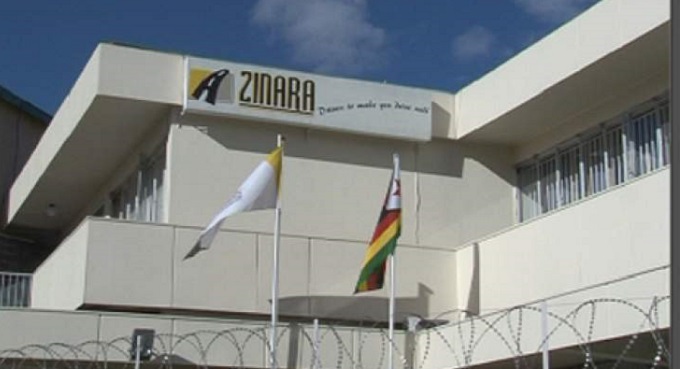Price cuts to restore consumer buying power….as more businesses respond to Zim$ value regain

Business Writers
THE recent drop in prices of basic goods and services is expected to restore consumer purchasing power in line with the continued positive exchange rate developments, which have seen the Zimbabwean dollar regain its value for the past three consecutive weeks.
In a huge relief to consumers, large and small-scale business entities have started adjusting the prices of goods and services downwards to reflect the positive impact of the Government’s macro-economic stabilisation policy measures.
The local dollar has been regaining value at the formal wholesale foreign currency auction system with a similar positive outcome on the parallel market, which has also been forced to review its rates downwards, thereby closing the premium difference while ensuring market stability.
The black-market rate, which had gone as high as US$1: ZWL$10 000 in the past few weeks is now ranging from ZWL$7 000 to ZWL$8 000 for US$1 while the official rate stands at US$1:ZWL$5 251 from a peak of close to 1:7 000. The drop in exchange rates comes following the introduction of a string of economic policies put in place by the Government to restore the value of the local currency.
A snap survey carried out by a Chronicle news crew in Bulawayo yesterday revealed that most supermarkets and businesses have started using the official bank rate with an accepted margin of 10 percent of the interbank rate, while also reducing prices of basic commodities in local currency.
For instance, in some retail shops bread, which was being sold between ZWL$7 500 and ZWL$9 000 yesterday was selling for ZWL$6 500.
A 2kg bag of sugar was selling for between ZWL$18 000 and ZWL$22 000 down from between ZWL$25 000 and ZWL$30 000. (More details show on the graph).

Speaking on ZBCtv last night Finance and Economic Development Permanent Secretary, Mr George Guvamatanga acknowledged that prices of goods and services were going down across the country and that Government agencies were also following suit in adjusting their costs in line with the positive impact of policy measures. He projected that going forward more stability will be entrenched.
In separate interviews consumers commended the gradual decline in prices and expressed confidence in further sustained drop.
Mr Pride Karaidze said the drop in prices enabled them to purchase more basic commodities with relative ease.
“Commodities such as cooking oil, sugar, and salt are now affordable. I’m happy the prices are now reducing and it’s actually helping us as a nation,” he said.

“We are urging the Government to continue promoting price decline with different policy interventions.” Another consumer said: “It’s a great move that has been made and we expect the prices to go further down and be more suitable to every consumer who is still being paid in the local currency.”
Contacted for comment, Confederation of Zimbabwe Industries (CZI) president, Mr Kurai Matsheza, said if the Zimbabwean dollar continues on a trajectory of regaining its value, prices of basic goods will continue to decline.
“It’s still early to know if the development in price decline is sustainable because a lot of things contribute to the final price of goods and services,” he said.
“However, if the local currency continues to gain its strength, we will see prices continue to decline,” said Mr Matsheza. In response to the firming of the local currency, some Government agencies such as the Zimbabwe National Roads Administration (Zinara) have reduced the cost of their services.

The road agency took the lead in aligning its charges with prevailing exchange rates. It reviewed downwards both toll and vehicle licensing fees with, for example, the toll fee for light motor vehicles going down to ZWL$10 800 from ZWL$11 960.
The Bulawayo City Council has similarly adjusted its bills in line with the prevailing official exchange rate and yesterday charged ZWL$5,815 to the US-dollar, inclusive of the 10 percent permissible margin.
In a recent interview, Consumer Council of Zimbabwe (CCZ) Matabeleland regional manager Mr Comfort Muchekeza said Zinara has done well as a Government organisation as it leads by example on how business should be conducted.
“What Zinara has done is commendable. This is how it should be done. As CCZ we call upon all other players, be it public or private to do the same. This will even further strengthen our ZWL for the benefit of both business and consumers,” he said.

Zinara offices
Economists have also said the fall in the price of basic goods in response to the decline in the exchange rate is a positive outcome and of major benefit to the public. “While it may be too early to judge the sustainability of this exchange rate decline, the market is now showing confidence among policymakers and economic players.
“There are more policy instruments such as gold coins and digital tokens, which are likely to reduce pressure on US dollar demand and be alternative instruments for the medium of exchange and store of value,” said Lupane State University business clinic development manager, Mr George Nhepera.
“These are the game-changer instruments, which our monetary authorities have designed as part of innovation and are effective in solving the current challenges of exchange rate decline.”
Another economic analyst, Ms Shynet Chivasa, advocated for more robust measures to promote acceptance of local currency as a medium of exchange.
“This can only be sustained by making foreign currency available and also limit money supply growth and putting measures in place to promote acceptance of local currency as a medium of exchange.
“Once these measures are in place, pressure on the US dollar will decrease and thus lower the exchange rate.”












Comments